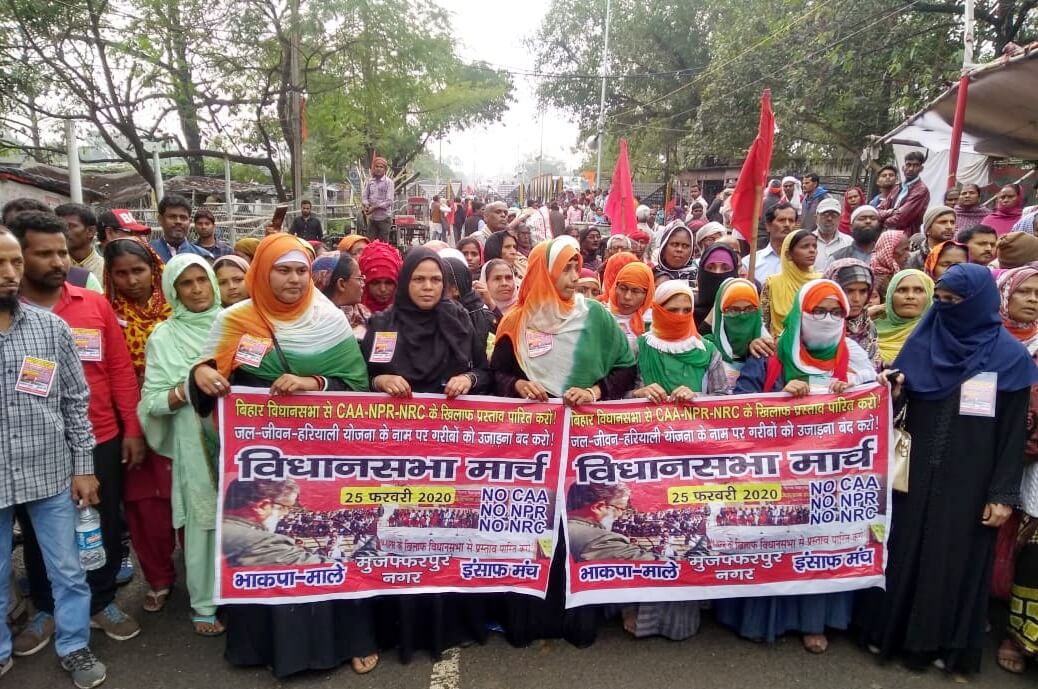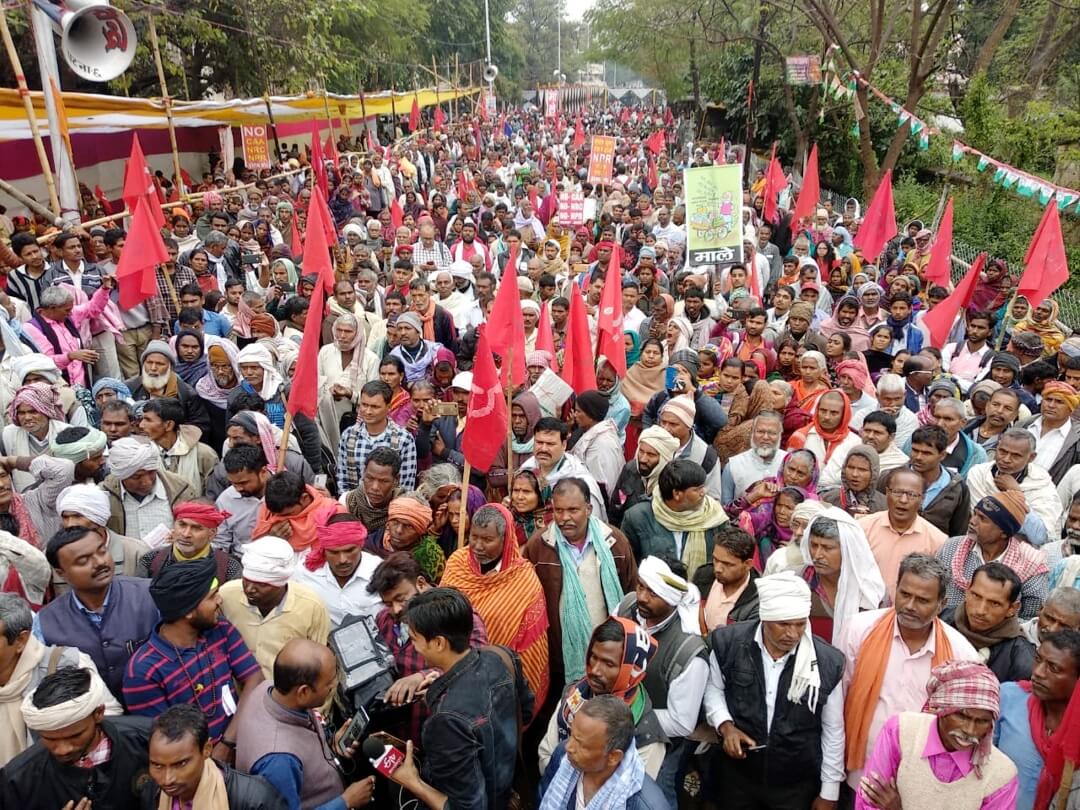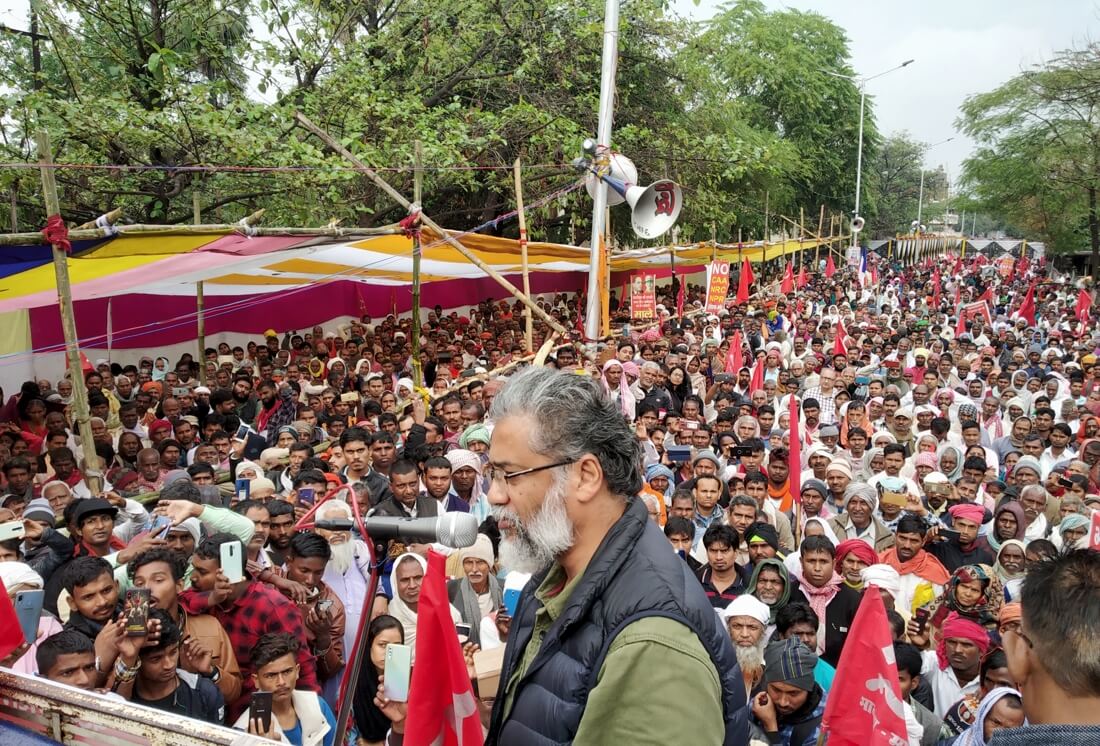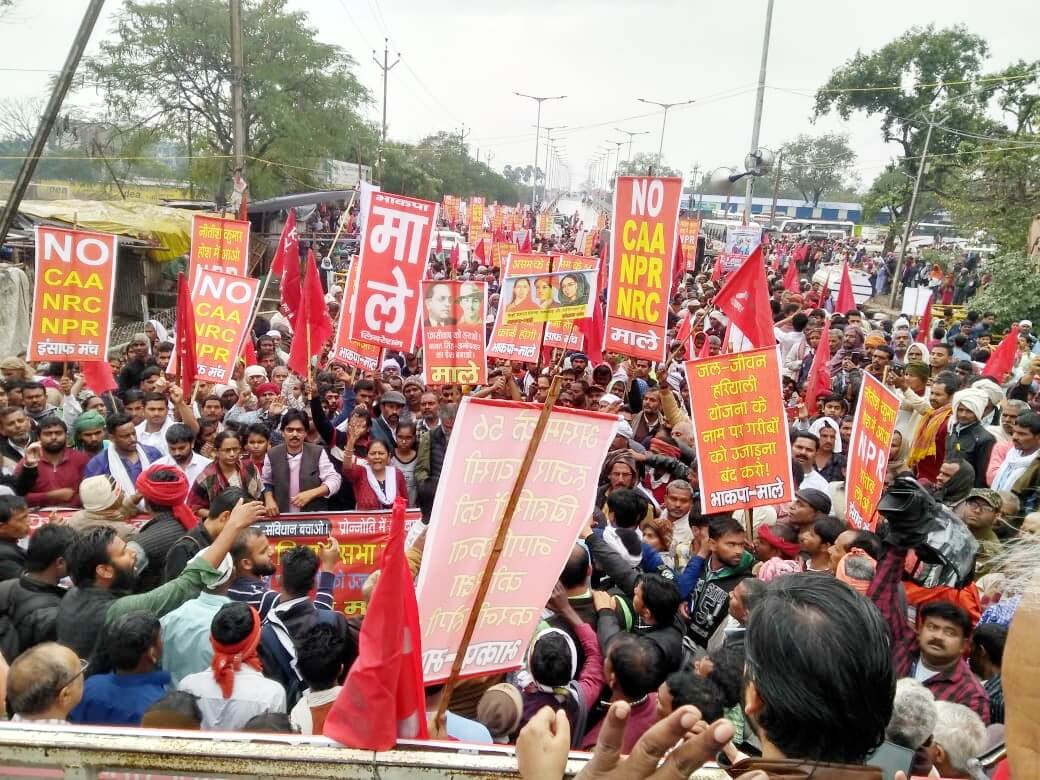ON February 25, thousands of people from Bihar’s villages, especially its most oppressed and poor communities, marched in thousands to the Bihar Assembly in Patna, demanding that the Assembly adopt a resolution against the NPR, NRC and CAA. Braving the rain, the thousands came from all over Bihar to flood Patna streets.
For months, people had sustained sit-ins all over India and Bihar also. These Shaheen Baghs are at the forefront of the resistance. The March to Assembly was distinguished by the fact that the majority of the participants were from the Dalit and landless poor communities, sending the message loud and clear that the NPR NRC CAA were opposed not only by the Muslim community but equally by Bihar’s and India’s poor across communities.

The March had been preceded by an intensive campaign comprising village meetings, where CPIML activists explained the dangers of the CAA NPR NRC in simple, persuasive, and effective language, and countered the myths about it.
Along with the CPIML, the participation of the Insaf Manch, one of the groups at the forefront of the movement in Bihar, was very effective and visible.
While the demand for the resolution against NPR NRC CAA took centre stage, the March also demanded that the Centre take steps to ensure that the SC verdict was not allowed to roll back SC/ST and OBC reservations in promotions. The March also exposed how the “Water-Forests-Greenery” campaign by the Bihar Government was proving to be a pretext for evicting the poor from lands – while feudals occupying land close to water bodies were not touched.

The gathering at Patna was conducted by CPIML Politburo member Dhirendra Jha. The March was addressed by CPIML MLAs Mahbub Alam, Sudama Prasad and Satyadeo Ram, who moved the first adjournment motion that day in the Bihar Assembly, seeking a resolution against NPR NRC and CAA.
The Bihar Assembly had unanimously adopted a resolution against NRC and the 2020 NPR. This was a partial and significant victory, exposing the fact that even the NDA rulers of Bihar had to admit the NRC and NPR are dangerous for common people. But the fact is that even this resolution is inadequate. It is not enough to say the NRC is not needed in Bihar: Bihar and Bihar’s workers are spread all over India, and the NRC must be opposed all over India. Further, the NPR’s sting does not lie mainly in the questions added since 2010 to the questionnaire, it lies in the fact that due to the 2003 Rules, the NPR allows tehsildars to declare anyone a “doubtful” citizen without having to show any basis for doing so. The NPR in fact has no place in the law, it exists only in the Rules supporting NRC. So not only must the NRC and CAA laws be scrapped but the NPR Rules must also be scrapped.

CPIML CC Member and AIPWA GS Comrade Meena Tiwari also addressed the march, stressing the dangers of NPR NRC CAA for women and poor, oppressed communities. Comrades Suraj and Aftab from Insaf Manch also addressed the March.
CPIML GS Comrade Dipankar addressed the March stressed that while the Resolution adopted in the Assembly marked a significant achievement, it was far from enough. The fight must now be taken to the Gram Sabhas, he said, calling for Zila Panchayats and Panchayat Samitis to adopt resolutions rejecting NPR NRC CAA in toto and instead demanding public expenditure on education, schooling, housing, healthcare, rations and pensions.
